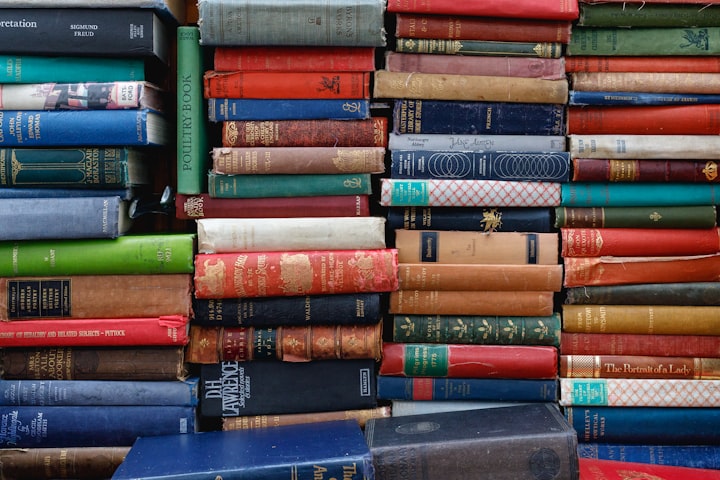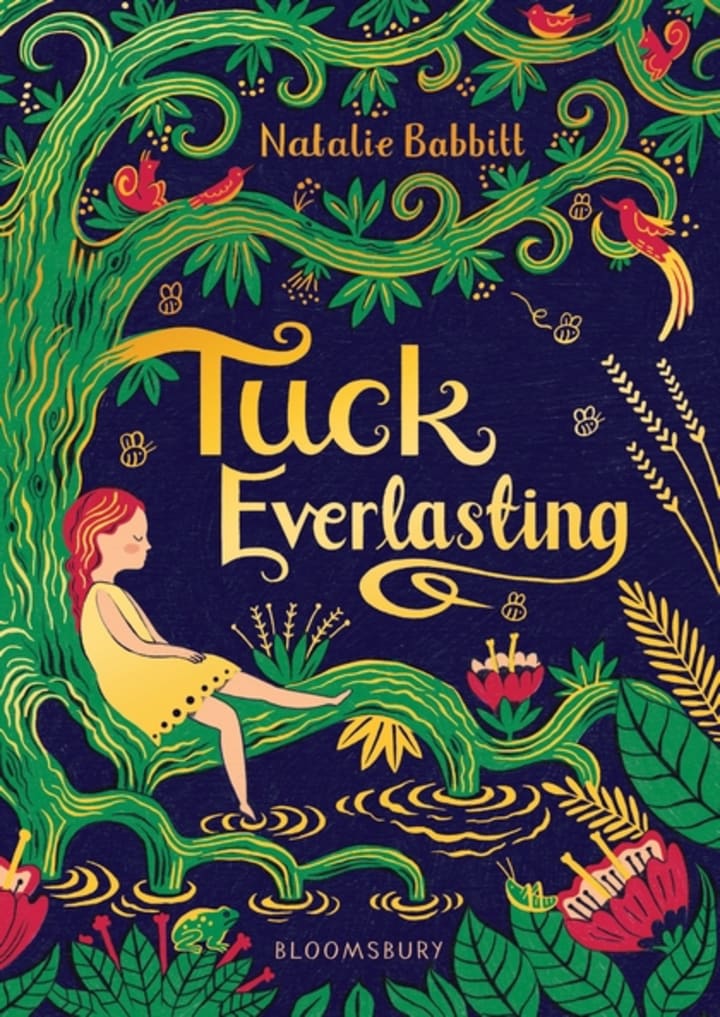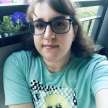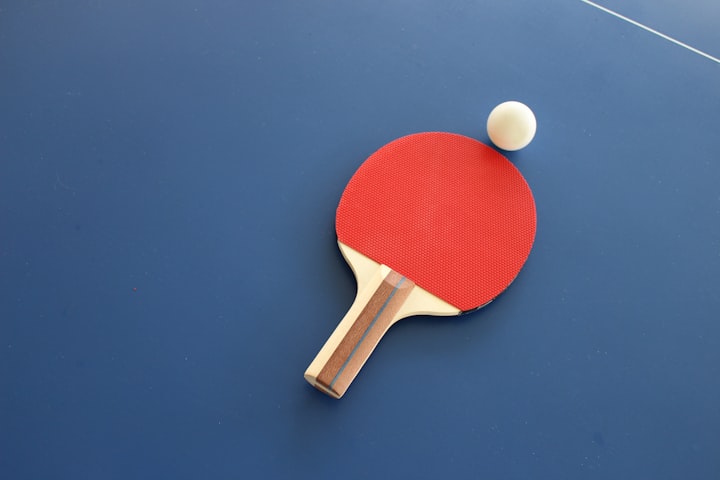Reading Is The Best Form Of Mental Medicine
How the practice of Bibliotherapy makes a positive impact in the lives or children, youth and adults with various mental, psychological, cognitive and intellectual disabilities. I also want to share my personal experiences with reading in both home and school settings.

What is Bibliotherapy?
Bibliotherapy is another form of mental health intervention, in which books are utilized to improve the patients quality of life and support his or her overall wellbeing. These disorders usually affect the mental, psychological, cognitive and emotional wellbeing of humans. People with developmental and intellectual disabilities could also benefit from the practice of bibliotherapy.
Although genres like self-help and philosophy are frequently used in bibliotherapy, fiction is also commonly used in bibliotherapy.
Bibliotherapy sessions are conducted individually (one-on-one) or in a group setting. It can also be self-administered, which means that the person can practice bibliotherapy without the guidance of a therapist.

When Is Bibliotherapy Typically Used?
For people who are grappling with mental health disorders like anxiety, depression or have gone through trauma, bibliotherapy can be an addition to their health care plan, in addition to the administration of different mediciations (e.g. anti-depressants, anti-psychotics) and participating in multiple forms of therapy (e.g. talk therapy, art therapy, drama therapy, etc.).
Unlike many types of therapies like dance therapy, aquatherapy or behaviour therapy, bibliotherapy is affordable, easy to apply and only has a few side effects. Bibliotherapy is mainly used to provide short-term mental health support to the patients, those who are financially unstable or those with mild to moderate mental health disorders.
My Personal Experiences with Bibliotherapy
I grew up around books. My dad always has a book handy, my mom used to be an avid reader and my nana (my mom's mom) always has a book on her hands. Basically, books became a part of our family and will always be a part of our family.
I've always been a reader, but fiction didn’t interest me until I reached my tween years. When I was a child, factual books, celebrity biographies, encyclopedias and magazines were the reading materials that I used the most. I enjoyed learning about each celebrity and what they're interests are, countries and languages around the world, the entertainment industry and recipes. Since I was eight years old, I’ve had the ability to memorize facts, so that’s why facts come easy to me.

Since I was in the 4th grade, my nana and I have always had meaningful conversations about the books we are reading. It's something that we always like to discuss and reflect on. Many kids in my class were reading novels like The Princess Diaries by Meg Cabot, Ginger Pye by Eleanor Estes, the Geronimo Stilton series, the Choose Your Own Adventure novels and other ones that I can't recall at the moment. When I used to read fiction for academic purposes, my teachers used to get me to read more modified chapter books and picture books, because my reading comprehension wasn't the best back then. Once it got better and the drive to challenge myself got slightly higher, I started reading the Nancy Drew books by Carolyn Keene, Hoot by Carl Hiaasen, Lemony Snickets and a Series of Unfortunate Events books by Daniel Handler and the Charlie Bone series by Jenny Nimmo. Once I started reading fiction regularly, my reading comprehension and writing skills gradually improved by the end of elementary school. I started to become well-read in the middle of Grade 6, but there was still room for improvement. At the end of the 6th grade, novels became my best friend and I didn’t perceive reading as “something I was obligated to do”. As a result of reading fiction on a regular basis, I've mastered my literacy skills at the start of Grade 9, which has lead to me receiving many class-related awards in English. My learning difficulities weren't as severe and my attention span increased tremendously. Thanks to my motivation to be a “lifelong reader”.
Luckily, I didn't need to undergo bibliotherapy sessions, because my teachers/tutors were kind of like my bibliotherapists. Books and reading already came naturally to me, so I just self-conducted bibliotherapy sessions at home. Although I didn't use books as an actual "mental health treatment", it was still beneficial for my personal cognitive, social and intellectual wellbeing that increased my capacity to learn, develop, make and keep friends in the long-run. Reading also improved my ability to participate in my community and network with other people who have similar interests to me, as opposed to if I didn't read and if my level of knowledge or variety of interests were rather low than medium-high.

Benefits of Bibliotherapy
The practice of bibliotherapy has multiple health benefits for people with mental illnesses such as Bipolar Disorder, Autism (mild-moderate), Depression, Anxiety, Eating and/or Substance Disorders. Even if you don't have a clinical diagnosis of a mental health disorder, people who are or who have experienced difficult life events like trauma, death, divorce and a breakup. Several common health benefits of bibliotherapy are: improved self-esteem and self- confidence, improved literacy skills, improved critical thinking skills, reduced feelings of alienation and improved communication skills that we can use in our everyday lives.
How to Get Started
Reading is supposed to be a rewarding, fulfilling, meaningful and relaxing experience for all of us. Reading is not supposed to make us go mad. To make your leisure reading/bibliotherapy journey a purposeful one, you have to understand what to do prior to beginning.
It's easy for us to simply pick up any random book that "we think" we will grasp or be interested in. The truth is, we can't just read any book unless we fully comprehend and/or enjoy the story, so we can gain the most out of our reading experiences. To successfully start our journeys to reading and better literacy skills, you need to do the following things:
1. Explore your reading interests and choice of materials

There's all kinds of reading material. You can pick anything from cheap newspapers at a convenience store to the fanciest hardcover novel from a local bookstore. The first step is to ask yourself, "what kind of reading material do I prefer to use on a daily basis and for what purposes?" After you've answered that one question, explore the different genres, sub-genres and topics that you're interested in reading about and spending your time on. Once you've made all of your discoveries, explore the various places in which you can buy the desired reading material from. If you're reading for pleasure, that's an easy fix- bookstores, libraries, thrift stores and dollar stores are great places to start. If you're reading for educational/health purposes, informative or specialized bookstores may be the best bet. If you're reading for both purposes, you can visit both specialized and general bookstores.
2. Set a special time to read

Our days are consumed with multiple activities- work, school, extracurriculars, chores, appointments, family/friend gatherings and so much more! We also need to fill in some time to do the things we need to do to take care of our intellectual, emotional, psychological, cognitive and spiritual wellbeing like reading and praying.
Specifically for reading, find a time that works best for you, your family and/or your daily work/school schedule. If your work schedule accommodates multiple breaks, you can use your coffee and/or lunch breaks to disconnect and read a book instead of picking up that phone you have! During the evenings, before/after dinner or before bed, you can spend 10, 15, 20 or 25 minutes reading to self-soothe. I typically like to read during the day, but I'm usually flexible with my times and days.
3. Join a book club or group

It's always beneficial to find people who have similar interests to us. Book clubs and discussion groups are easy to access both digitally and in-person in multiple settings like libraries, schools and places of worship. Depending on what you typically enjoy reading about and/or the purposes of reading in your lives, you'll need to take some times to find the most suitable book club or discussion group if that's something you want to fill your time with. You don't have to be a reader or start reading to join a book club. It's only a recommendation for those who want to be social and be up to date with other books.
4. Find some book-related activities to do at home

If you want to remember the things you read but don't want to be too hard of yourselves, look into some fun activities that are based on the books you are reading. Activities that you can do both online and manually are: book-related quizzes, word searches, crossword puzzles, reading study guides, writing notes and exchanging them with your friends and fill-in the blanks puzzles. These activities can be done on your own or in a group of 2 or more people.
We don't want to treat this like we're trying to complete a huge book report that our 5th grade teachers want us to do; this is meant to make your reading/bibliotherapy experience an enjoyable, relaxed and beneficial one. Reading for enjoyment is one thing, but we also want to remember what we read. Doing activities like puzzles, quizzes and reading study guides can be fun and can encourage us to continue reading, as opposed to when we are forced to read and complete a 500-word essay or huge book report for school. I personally like doing word searches, fill-it-in puzzles and online quizzes that I can find on digital platforms like Quizlet and Quizziz.
Conclusion
Bibliotherapy supports people with all kinds of challenges ans disorders. You can do it with a therapist, a teacher, your parents or on your own. People practice bibliotherapy for multiple purposes and is one of the least expensive forms of therapy that have very few adverse effects, which is one of the reasons why that may be a first or last resort for someone seeking psychological care.
When we’re interested or understanding what we're reading, our journeys will be meaningful. Fun activities and other ways of connecting with readers are superb ways to continue your reading journeys. The goal is to be lifelong readers, so we want to make sure that we're finding and utilizing the resources that best match our strengths, needs, personalities, interests and purposes.

Thank you for taking the time to read this informative article I wrote. If you enjoyed reading this article, please give it a ❤️, share it with others and feel free to send me a tip to show your support and appreciation. To read and find more of my Vocal publications, please subscribe to me and visit my public profile. Please feel free to connect with and follow me on Instagram. Until next time!
IG Account: @naturalbibliophile22

#booksarefun #lifelongbibliophile #readersareleaders #bibliotherapy #focusonyourgoals #keepreading #behappy #enjoylife #healthishealth
About the Creator
Talia Devora
Poetess, visual artist and lifestyle/quiz writer! My pastimes include reading, sleeping, gaming, music, fitness, etc! Be yourselves, be kind and value life! Let's connect and be friends!
My IG accounts: @tdwrites24 & @tdcreates97






Comments
There are no comments for this story
Be the first to respond and start the conversation.